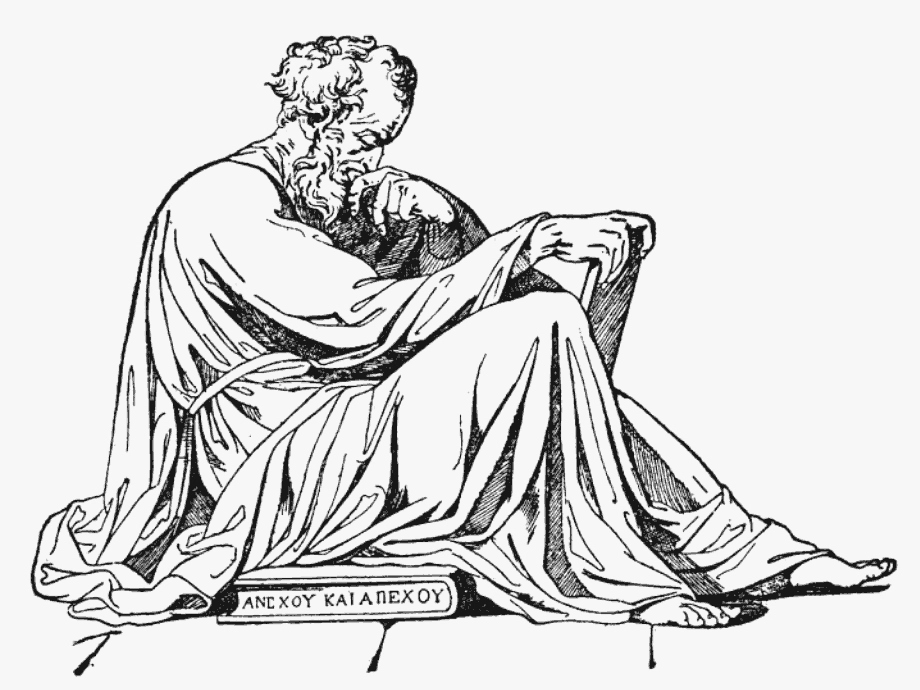Tribal behavior is destroying our civil discourse.
The ancient Stoic philosopher Epictetus taught that “the first and greatest task of a philosopher is to test impressions and distinguish between them, and not admit any that has not been tested.” This wasn’t abstract philosophy—it was practical wisdom for catching your own bias before it catches you.
Epictetus understood something fundamental: we can’t control what others say or do. We can only control our impressions—the information we receive—and how we choose to react to them. Test the impression first, then form your judgment. Skip that step, and you become a puppet of whoever crafted the message.
Two thousand years later, we’ve forgotten this wisdom. And it’s pushing our democracy to the brink.
The Dopamine Addiction Destroying Democracy
Research reveals a troubling reality: humans are experiencing a mass addiction to algorithm-driven dopamine hits. Social media platforms have discovered that content characterized by moral outrage, fear, and animosity is particularly effective at capturing attention and creating engagement. When a user receives a “like” or shares outrage-inducing content, the same dopamine pathways involved in motivation, reward, and addiction are activated.
The platforms know this. Their algorithms are built to maximize “engagement”, and they’ve learned that anger is addictive. Multiple states have sued TikTok for creating what they call “dopamine-inducing” algorithms intentionally designed to trap users in excessive use.
The result? No longer are the ideas of the other side analyzed and challenged—the other side is marginalized and demonized.
Echo Chambers Are Making It Worse
What started as biased media outlets has metastasized into entire social media platforms catering to the creation of echo chambers limited to the tribe. A major experimental study found that partisan echo chambers increase both policy polarization and affective polarization (how much you hate the other side) compared to mixed discussion groups.
The study showed that even in just a 30-minute discussion among strangers, echo chambers significantly widened the partisan gap on already divisive issues. When people discuss politics only with those who already agree with them, they become more extreme in their views AND more hostile toward those who disagree.
Research on digital tribalism shows that misinformation in closed communities “spreads in a virus-like fashion, misleading members and inciting them to potentially violent action”. The Capitol riot, the church burnings in Canada, coordinated online mob attacks—all were orchestrated through homogeneous digital tribes.
As one analysis concludes, digital technology is “gnawing at the core of democracy by dividing us into tribes and devaluing truth”.
The Weaponization of Tribalism
The sides have figured this out. They’ve weaponized it.
Political strategists, media outlets, and social media influencers constantly stoke the fires of disagreement and division, rallying supporters to their cause not through better arguments, but through tribal loyalty. Studies show that derogatory content directed at out-groups generates higher engagement and carries lower social cost than criticizing the in-group.
The incentive structure is clear: outrage pays, nuance doesn’t. Platforms profit from keeping you angry and scrolling. Political operatives profit from keeping you afraid of the other tribe. Media profits from confirming your biases.
It’s propaganda, unchecked and run amok.
The Epictetan Alternative
But here’s what Epictetus knew that we’ve forgotten: you don’t have to accept the impression.
When a meme crosses your feed claiming something outrageous about “the other side”—test it. When a news headline confirms everything you already believe—test it. When a politician tells you the opposition is evil—test that impression.
Ask:
What’s the source? Is it credible?
What evidence supports this claim?
What does the other side actually say, not what this source claims they say?
Am I feeling outrage because the claim is true, or because it’s designed to trigger outrage?
Would I accept this same reasoning if it came from the opposite tribe?
This isn’t “both-sides-ism.” It’s not claiming everyone is equally right or equally wrong. It’s refusing to let your judgments be controlled by those who profit from your outrage.
What This Site Does
Test Your Impressions exists to model that process.
I don’t claim to have “the truth”—I provide the methodology for testing claims. I examine political narratives, policy arguments, viral memes, and cultural flashpoints against evidence, logic, and Stoic virtue. I critique ideas, not people, because I assume your capacity for reason even when questioning your current impressions.
Some pieces will challenge claims from the right. Some from the left. All will prioritize evidence over emotion, nuance over narrative, and pragmatic solutions over tribal warfare.
Because untested impressions lead to bad judgments. Bad judgments lead to tribal chaos. And tribal chaos is destroying the functional governance we desperately need.
Epictetus offered a way out 2,000 years ago. It still works.
Test your impressions. Question the narratives. Refuse to be a foot soldier in someone else’s purity war.






Comments